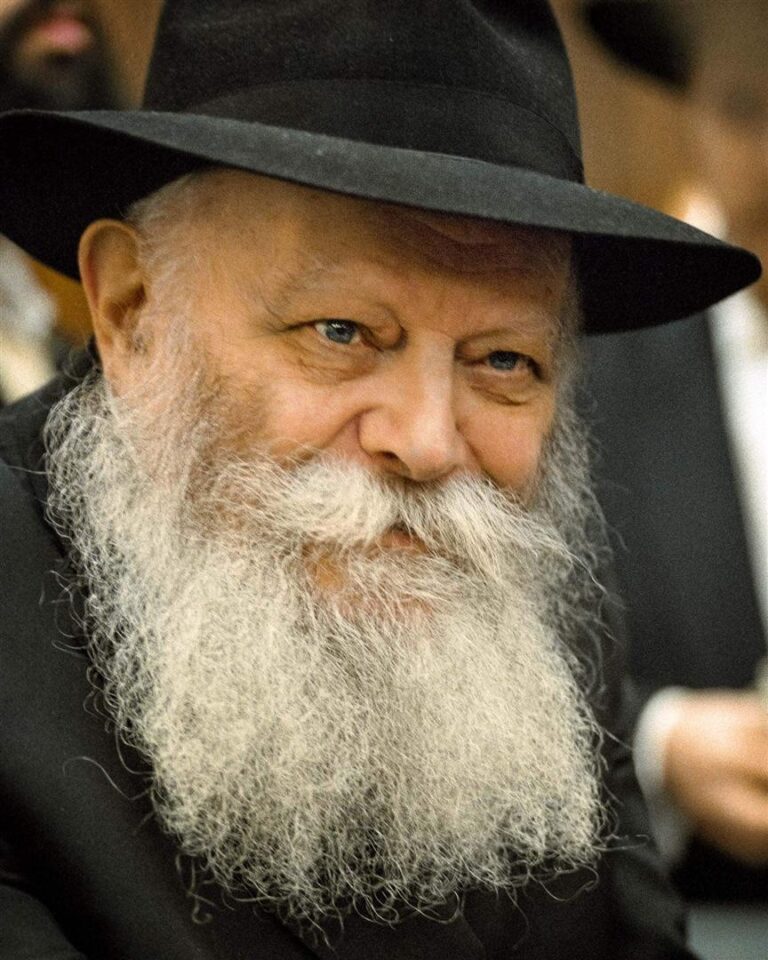)%20(32).png)
Tzav
This week, we read Parshat Tzav which means to command.
G‑d tells Moses to command Aaron and his sons regarding their jobs as kohanim (“priests”) who serve in the Sanctuary.
The fire on the altar must be kept burning at all times.
The Parsha goes on to detail which parts of which sacrifices are eaten by the Kohanim and which parts are burned in that fire.
Aaron and his sons remain within the Sanctuary for seven days, during which Moses initiates them into the priesthood.
)%20(31).png)
The Shabbat That Shook Egypt
The Shabbat before Pesach is called "Shabbat Hagadol" (the "Great Shabbat") for a number of reasons:
The Great Miracle
The Jewish people were commanded by Moses to take a lamb and tie it to their bedposts on Shabbat, the 10th day of Nissan, five days before they were to leave Egypt. When the Egyptians inquired by the Jews why they were buying lambs en masse, they were told that these lambs were intended for the Paschal Offering, which would be sacrificed in preparation of the Plague of the Firstborn. This information rattled the Egyptian firstborn, who immediately insisted that Pharaoh grant the Jews freedom. When Pharaoh refused their request, the Egyptian firstborn waged war with Pharaoh's army, and many evil Egyptians were killed on that day.
Furthermore, on this day it was demonstrated that the Egyptians were powerless against the Jews.
chabad.org

The Rebbe’s Birthday: When a Soul Shines for the World
The 11th of the month of Nissan (which was this past Wednesday) was the Lubavitcher Rebbe’s birthday. A birthday is more than a day for songs and celebrations. Instead, a birthday is a day when the spiritual source of a person’s soul shines with power. The spiritual core of the person is the mazal that shines powerfully on a person’s birthday.
The Rebbe’s birthday is not merely a personal event, affecting him alone. On the contrary, the very name Rebbe is an acronym for the Hebrew words , “head of the Jewish people.” The head contains the nerve center for the entire body, allowing all its diverse organs and limbs to function together as a single whole. Similarly, a Rebbe is a comprehensive soul whose life is lived in the consciousness of others and whose efforts are devoted to tightening the connection between them. As such, the Rebbe’s birthday is a day which impacts us all.
What is the Rebbe’s mazal and where is it directed? In one of his letters, he writes: “From the days I began going to cheder (school) and perhaps even before then, I had a vision of the ultimate Redemption.” His entire life, the Rebbe devoted his efforts to creating a spiritual climate that will make Mashiach’s coming a reality.
On a day when “the spiritual source of his soul shines powerfully,” each one of us should think of the way he can help shoulder and advance this mission. It is our responsibility to create the conceptual foreground and make the values and principles that will characterize the Redemption factors that influence our lives at present. Anticipating the Redemption in this manner will precipitate its unfolding as actual reality.
Adapted from Chabad.org, based on the teachings of the Lubavitcher Rebbe
)%20(35).png)
Thanking G‑d for the Hard Stuff
We are told that when Moshiach comes, we will actually thank G-d for all the hardships we have been through. This is because we will recognize that it is through our efforts in overcoming them that we bring about Moshiach’s coming.
)%20(34).png)
No One Left Behind, Not Even the Giver
Our sages tell us that a propensity for acts of loving-kindness is one of the three basic characteristics of the Jewish soul. I would like to share with you a story that moved me deeply, which relates to this characteristic of loving kindness and mutual responsibility.
Rabbi Eliezer Zusha Portugal , the Skulener Rebbe, was the chassidic rebbe from a small town, Sculeni, in what was then northeastern Romania (now Ukraine). Toward the end of World War II, in March of 1945, he found himself in the Russian-governed town of Czernovitz, Bukovina. At this time, much of Eastern Europe had already been liberated by the Russian army.
Passover was only weeks away.Despite the oppressive economic situation of the Jews, he was able to bake a limited number of proper shmurah matzahs. He sent word to other rebbes in the region, offering each of them three matzahs.
One week before Pesach, Rabbi Moshe Hager, came for the matzahs that had been offered to his father, Rabbi Boruch Hager. After being handed the allotted three matzahs, he said that his father had asked him to bring back six Matzahs. The Skulener Rebbe felt that he had no choice but to honor the request, albeit reluctantly.
On the day before Pesach, Rabbi Moshe returned to the Skulener Rebbe, saying "I want to return three of the matzahs to you."
"But I don't understand. I thought your father absolutely had to have six matzahs."
"My father said to ask whether you had saved any of the Shmurah Matzah for yourself?"
Embarrassed, the Skulener Rebbe replied, "How could I, when so many others needed?"
"My father assumed that is what you would do," explained Rabbi Moshe. "These three matzahs are for you!"
Yisroel Susskind